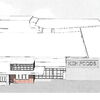Processing Your Payment
Please do not leave this page until complete. This can take a few moments.
-
News
-
Editions
-
- Lists
-
Viewpoints
-
HBJ Events
-
Event Info
- 2024 Economic Outlook Webinar Presented by: NBT Bank
- Best Places to Work in Connecticut 2024
- Top 25 Women In Business Awards 2024
- Connecticut's Family Business Awards 2024
- What's Your Story? A Small Business Giveaway 2024 Presented By: Torrington Savings Bank
- 40 Under Forty Awards 2024
- C-Suite and Lifetime Achievement Awards 2024
- Connecticut's Health Care Heroes Awards 2024
-
-
Business Calendar
-
Custom Content
- News
-
Editions
View Digital Editions
Biweekly Issues
- April 29, 2024
- April 15, 2024
- April 1, 2024
- March 18, 2024
- March 4, 2024
- February 19, 2024
- February 5, 2024
- January 22, 2024
- January 8, 2024
- + More
Special Editions
- Lists
- Viewpoints
-
HBJ Events
Event Info
- View all Events
- 2024 Economic Outlook Webinar Presented by: NBT Bank
- Best Places to Work in Connecticut 2024
- Top 25 Women In Business Awards 2024
- Connecticut's Family Business Awards 2024
- What's Your Story? A Small Business Giveaway 2024 Presented By: Torrington Savings Bank
- 40 Under Forty Awards 2024
- C-Suite and Lifetime Achievement Awards 2024
- Connecticut's Health Care Heroes Awards 2024
Award Honorees
- Business Calendar
- Custom Content
Artizan to collaborate with European researchers on cancer therapy
 PHOTO | CONTRIBUTED
Dr. Bridget Martell
PHOTO | CONTRIBUTED
Dr. Bridget Martell
New Haven-based biotech Artizan Biosciences, Inc. announced this week it has entered into a multi-year research collaboration to explore the potential role of gut microbiota in therapies for cancer patients.
The collaboration is with the University Medical Center Utrecht in The Netherlands and Spain-based biotech Microviable Therapeutics.
Researchers will explore the relationship between gut microbiota (all the microbes living in one’s digestive system) and immune checkpoint inhibitor (ICI) therapies for cancer patients.
Dr. Bridget Martell, Artizan’s president and CEO, said the collaboration has the potential to further expand its oncology pipeline.
“As published in the Journal of the American Medical Association, approximately 43.6% of U.S. patients with cancer are eligible for ICI therapy, yet only 12.5% of treated patients respond to it,” Martell said, in an announcement. “We look forward to working with UMC Utrecht and Microviable to identify potential solutions that can improve patient outcomes and reduce the side effects of ICI treatment.”
Artizan is creating gut exclusive microbial metalloprotease inhibitors (GEMMi), therapeutics which disrupt triggers of chronic inflammatory disease.
Through the collaboration, researchers will investigate factors which impact ICI therapeutic response and side effects. They will analyze samples from more than 200 cancer patients taken before and during ICI therapy, including patients who experienced intestinal immune-related adverse events (irAEs).
Marcel de Zoete, co-founder of Artizan and an associate professor of microbiome research at the Department of Medical Microbiology at the UMC Utrecht, noted that in up to 56% of irAE cases in ICI treated patients, “symptoms present in the intestinal tract as moderate to severe intestinal inflammation, resembling what is seen in patients with inflammatory bowel disease.”
“Recent data show a clear correlation between ICI induced irAEs severity and overall cancer survival,” de Zoete said, in an announcement. “The key challenge is how to maximize ICI therapy effectiveness while minimizing irAEs.”
Contact Michelle Tuccitto Sullo at msullo@newhavenbiz.com.

2022 Giving Guide
This special edition informs and connects businesses with nonprofit organizations that are aligned with what they care about. Each nonprofit profile provides a crisp snapshot of the organization’s mission, goals, area of service, giving and volunteer opportunities and board leadership.
Learn more
Subscribe
Hartford Business Journal provides the top coverage of news, trends, data, politics and personalities of the area’s business community. Get the news and information you need from the award-winning writers at HBJ. Don’t miss out - subscribe today.
Subscribe
2024 Book of Lists
Delivering Vital Marketplace Content and Context to Senior Decision Makers Throughout Greater Hartford and the State ... All Year Long!
Read Here-
2022 Giving Guide
This special edition informs and connects businesses with nonprofit organizations that are aligned with what they care about. Each nonprofit profile provides a crisp snapshot of the organization’s mission, goals, area of service, giving and volunteer opportunities and board leadership.
-
Subscribe
Hartford Business Journal provides the top coverage of news, trends, data, politics and personalities of the area’s business community. Get the news and information you need from the award-winning writers at HBJ. Don’t miss out - subscribe today.
-
2024 Book of Lists
Delivering Vital Marketplace Content and Context to Senior Decision Makers Throughout Greater Hartford and the State ... All Year Long!
ABOUT
ADVERTISE
NEW ENGLAND BUSINESS MEDIA SITES
No articles left
Get access now
In order to use this feature, we need some information from you. You can also login or register for a free account.
By clicking submit you are agreeing to our cookie usage and Privacy Policy
Already have an account? Login
Already have an account? Login
Want to create an account? Register
Get access now
In order to use this feature, we need some information from you. You can also login or register for a free account.
By clicking submit you are agreeing to our cookie usage and Privacy Policy
Already have an account? Login
Already have an account? Login
Want to create an account? Register






0 Comments